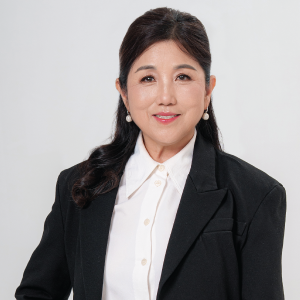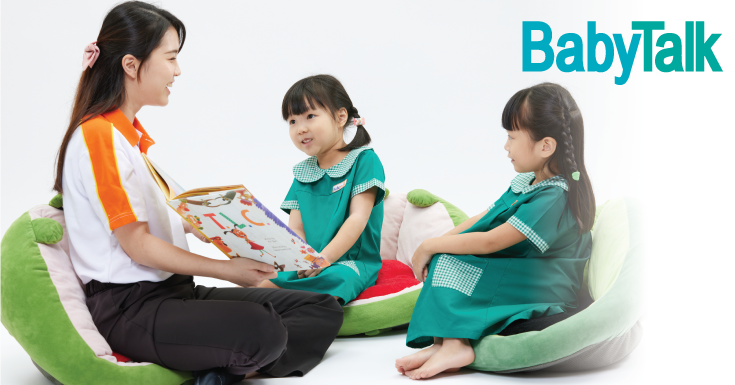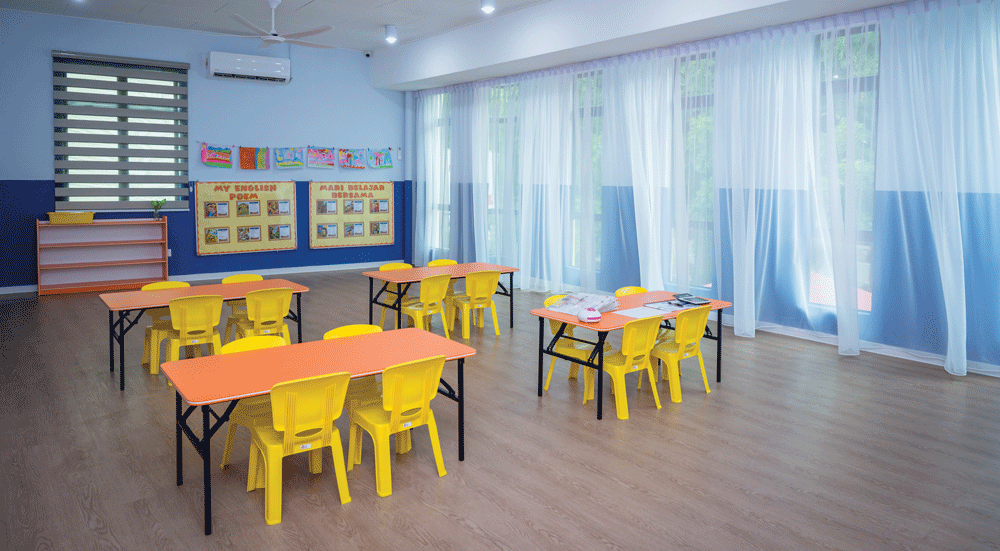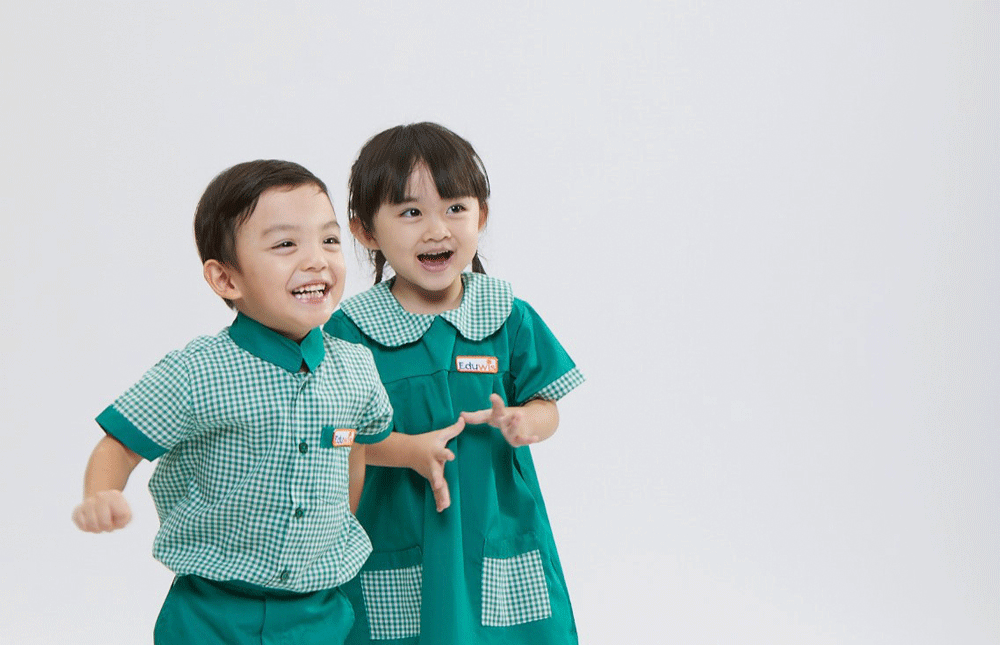Obtaining quality early education for their precious little one is definitely one of the top focuses of any family with a preschool-age child. And rightly so too, as a good head start in terms of education is arguably the key to a brighter future for any child. BabyTalk had the honour of interviewing Amanda Tan, Co-founder & Chief Curriculum Officer of Eduwis, and here’s what resulted.

Q: What are some of the weaknesses in the current early childhood care and education (ECCE) landscape in Malaysia?
A: ECCE is governed by two ministries in Malaysia – the Ministry of Women, Family and Community Development oversees childcare for ages 0 to 4 while the Ministry of Education oversees the preschool education for ages 4 to 6. The split systems governing different age groups under 6 years old are not coordinated and synchronised, whereby two licenses cannot be in the same premise and require different sets of operating regulations. This makes it difficult for the education providers to operate the business using dual-license and inconvenient for parents to shuttle between the preschool and child care centre.
In Malaysia, there are public preschools and privately run preschools. Public preschools are more accessible with very affordable fees. These public preschools have a system and programme but lack funds to ensure the quality of the learning environment. Like the Chinese proverbs, the wool comes from the sheep’s back. Some privately run preschools have a conducive and rich learning environment for early years, which comes with a higher price to pay and therefore not being able to afford by all parents.
As for privately run preschools, we can see a very big quality gap in Malaysia. Some preschools are in good shapes; some are very run-down. It all boils down to the low barrier of entry into this education business. The governance towards privately run preschools is not very strict by the ministry. Firstly, although there is a National Preschool Standard Curriculum for the preschool operators to follow, it is up to the operators to run their schools without on-going governance by the ministry. Secondly, the minimum requirement of qualification for preschool teachers is set to be minimum Diploma in Early Childhood Education by 2020 however this target could not be fulfilled. Most of the privately run preschool teachers are still holding only SPM certification. It is no doubt a challenge for teachers without proper qualification in early childhood education to facilitate a quality education programme which affects the quality of ECCE in Malaysia. Thirdly, many preschools or childcare operators are running the business without a proper license, making it difficult for the authority to track the quality of the education centres.
Q: Can you share with us how the current early childhood care and education landscape in Malaysia can be improved?
A: In my opinion, there are two crucial issues that need intervention to improve the ECCE landscape in Malaysia: teacher’s quality and fee subsidies.
A quality programme can be duplicated and implemented in different education centres but without quality teachers, even the best programme can go to waste. There is a great demand for qualified preschool teachers in Malaysia. By saying this, I am not referring to teachers who are professionally qualified, but teachers who are able to transfer their professional knowledge into their working performance continuously. I have seen many academically qualified teachers but lack some other good teacher’s attributes like patience, loving and passionate. Some teachers also lack a positive attitude and mindset which in the preschool setting is very important as the teachers are role models and great influencers towards our young children. On-going professional development courses in various aspects should be introduced and enforced for early childhood education teachers to attend.
Many European countries like Finland, Denmark and Germany have made it complimentary and compulsory for early education as they acknowledge the importance of early years’ development. In some other countries like Singapore, their citizens get to enjoy preschool subsidies by the government. This can further ensure the quality of the early childhood education as preschool centres and teachers are being financially taken care of. In Malaysia, there are preschool fee subsidies for parents but with stringent requirements. The fee subsidies are also only applicable to preschools that are charging a monthly fee of RM250 and below only, with most urban preschools not entitled to the benefit because of higher school fees implemented due to increasing operating expenses. More subsidies by the government towards the ECCE should be considered to raise the quality of the ECCE industry.
Q: What is the “8 Educationists’ Approach” used in your preschool establishment? Could you share the advantages of educating children using these approaches?
A: We integrate 8 Educationists’ Approach in our programme. The 8 educationists are Friedrich Froebel, Jean Piaget, Reggio Emilia, Maria Montessori, Lev Vygotsky, Erik Erikson, Confucius and Shinichi Suzuki respectively. The 8 educationists’ approach is a fusion of Western and Asian approaches that takes a good balance in nurturing children’s different development areas, especially relevant in this globalisation era. Let me share a few examples of the educationists approach we use.
As many have known, Froebel is the “father of kindergarten”. He emphasises on the importance of play and nature for young children. With his approach, we prepare more than 1,600 hands-on learning activities to let children “learn through play”. We stand with Froebel’s belief in preschool education by finding the beauty and power of nature as learning resources. Therefore, all our centres including shoplot premises are equipped with an edible garden. We let the children grow vegetables, flowers and fruits as part of the curriculum – to enhance children’s character, enrich their learning experience and broaden their knowledge and skills.
The Montessori approach is probably the most popular approach that is well-received by most Malaysian parents. Our programme only uses certain Montessori philosophies, focusing on developing children’s living skills, self-discipline and self-regulation. Most of our daily school routine revolves around Montessori’s approach. For example, in our classrooms, children enjoy a prepared environment that is orderly and clean. During mealtime, children are required to learn good eating habits, proper way of using the utensils as well as clean up themselves and the environment after meal.
When we talk about cultivating moral values, Confucius’ approach undoubtedly plays a crucial role. We use Confucius’ concept of “ren” 仁 (benevolence) to cultivate empathy, helping each other, altruism and sharing among the children. The concept of “li” 礼 means etiquette and rules for dealing with others in daily life. It is the norm of social theory and morality, guiding, restricting and regulating thoughts and behaviours to maintain social tranquillity and development. It is important for children to know how to respect each other and be in a community with good moral values, especially in a multi-racial society with an abundance of culture like Malaysia. We also emphasise “yi” 义 (righteousness) to children here. We want to bring up future leaders who are loyal, courageous to do what is right, have justice and reasonable.

Q: How are compulsory piano lessons in your programme important in aiding children in their studies whilst training their musical and creative skills?
A: In our preschool, every child has a daily individual piano learning session. For more than three decades, we have invented and implemented an interesting and simple way to engage children in piano learning. Piano learning in our programme is not categorised under enrichment lessons because according to Shinichi Suzuki, learning music is like learning our mother tongue, it should be something that can naturally happen.
Learning music can enhance various sensory functions of the brain. This includes vision, hearing, feeling, touching, physical movements, social awareness, among others. Hands-on, minds-on! Many experts have found that to raise smart children, we should let them use all their fingers regularly to stimulate the left and right brains.
Moreover, piano practice and performance require children’s auditory concentration, sensitivity and coordination among our senses and body. The brain is required to coordinate the ears, eyes, mouth, hands and feet while stimulating children’s imagination and creativity. This contributes to a healthy physical, psychological and cognitive development.
Every year, all our preschools organise singing presentations which pairs a singer and pianist to perform together. One child sings and another child plays the piano. The children get valuable opportunities to work with their friend to present a wonderful performance and this indirectly can enhance children’s self-awareness, self-confidence and self-efficacy.
Q: How does an ideal conducive learning environment for children affect their growth and development?
A: An ideal conducive learning environment includes the visible and invisible settings. A bare minimum for a good learning environment that is visible must be clean, bright and comfortable. When the children are in a hygienic and welcoming space, it sets an expectation towards the living environment and spatial perception for these young minds. It is also easier for teachers to build children’s good habits by cleaning up the space after use because they can understand the environment is expected to be tidy and clean again after activities or mealtime.
Not just that, it is important for the learning space to be rich and active. Rich learning environment means there are many opportunities for children to explore and discover. This helps to develop children’s cognitive thinking skills which include metacognitive, higher order thinking skills and many more. Whereas an active learning environment is always engaging and encouraging for collaboration. Instead of arranging the tables and chairs in classroom-style, preschoolers learn better from each other in a round-table seating in small groups. They can share their experiences, ask questions and do fun discussions that help build their social emotional development.
An invisible setting is as important as what we can see in an environment. A positive learning environment is accumulated by several factors: the teacher, the culture of the school, the approach being used to teach and so on. If a teacher is loving and patient, it sets an encouraging learning environment for the children. If the school culture often uses positive reinforcement, it sets motivation for children towards certain good behaviour. A good approach used in teaching can also spark children’s desire to learn.
Q: What are some of the crucial life skills that children should be cultivating and why are they important?
A: In early childhood education, it is essential for children to develop a range of crucial life skills that will serve as the foundation for their future success and well-being. Teaching children living skills and self-regulation, such as brushing their teeth, washing their hands, and dressing themselves, fosters independence and responsibility. Learning proper table manners, such as using utensils correctly and behaving appropriately during meals, helps children develop social etiquette and respect for others, enhancing their confidence in social settings. One of the educational approaches adopted by our preschool is Montessori, which aims to cultivate children’s life skills and self-regulation.
Encouraging children to make decisions and choices independently helps them develop critical thinking and problem-solving skills, enhancing their confidence and preparing them to face various challenges in life. Developing presentation skills through activities such as storytelling, singing and group performances builds communication skills and self-assurance, crucial for public speaking and effective communication in the future.
Additionally, learning to collaborate with others, exchange ideas, and compromise is essential for building strong interpersonal relationships. Social skills such as sharing, caring, and empathy are fundamental for teamwork and understanding diverse perspectives. Over the years, our preschool has organised various annual activities to foster these skills. These life skills are integral to preparing children for the demands of 21st-century education and beyond, providing them with the confidence, independence, and social competence needed to thrive in various aspects of life.
Q: How are holistic early education programmes important in raising well-rounded children in this ever-evolving generation?
A: A holistic approach to teaching and learning focuses on connection to the natural world where it incorporates ways to understand and respect the natural environment and the interdependence among people, plants, animals and environment.
Holistic approach in children’s development and learning recognise the connection of the mind, body and spirit. It focuses on children’s physical, personal, social, emotional and spiritual well being as well as cognitive aspects of learning – not just the academic advancement but establishing children’s overall well-being as a “whole-child” development.
By enhancing children’s mental and emotional well being such as being in a supportive and positive learning environment can integrate social and emotional learning along with academics. With this, children will have a better chance of emerging with self-awareness, higher self-esteem, confidence and sense of social responsibility. Not forgetting integrating learning concepts with the “whole-child” approach in education can increase children’s problem solving ability and enhance their critical thinking skills.
Q: How do holistic early education programmes help in our efforts to raise well-rounded kids in this ever evolving generation?
A: Holistic early education programmes play a crucial role in nurturing well-rounded kids in today’s dynamic world. These programmes go beyond traditional academics to focus on the overall development of children, encompassing their physical, emotional, social, and cognitive growth.
Firstly, holistic education programmes emphasise the development of a strong sense of self in children. By integrating various educational philosophies and theories, these programmes encourage children to explore their identities, interests, and values. This self-awareness forms the foundation for lifelong happiness and success, helping children to understand themselves better and navigate the complexities of life confidently.
Secondly, such programmes promote experiential learning through hands-on activities and play-based approaches. This interactive learning environment allows children to engage deeply with concepts, solve problems collaboratively, and apply knowledge in practical ways. Through activities that revolve around their interests and immediate environment, children not only learn academic content but also develop critical thinking skills and creativity.
Furthermore, holistic education emphasises social and emotional development. Children learn to interact with peers, communicate effectively, and develop empathy and cooperation skills. These social competencies are essential for building meaningful relationships and navigating diverse social settings throughout their lives.
To ensure that the holistic approach is implemented effectively, monthly teacher training should be provided to educators, as demonstrated by our preschool, Eduwis. This training aims to reinforce teachers’ knowledge, skills, and positive mindset. Additionally, we prepare an assessment and evaluation system to monitor children’s learning outcomes and teachers’ teaching performance from a holistic education perspective.




